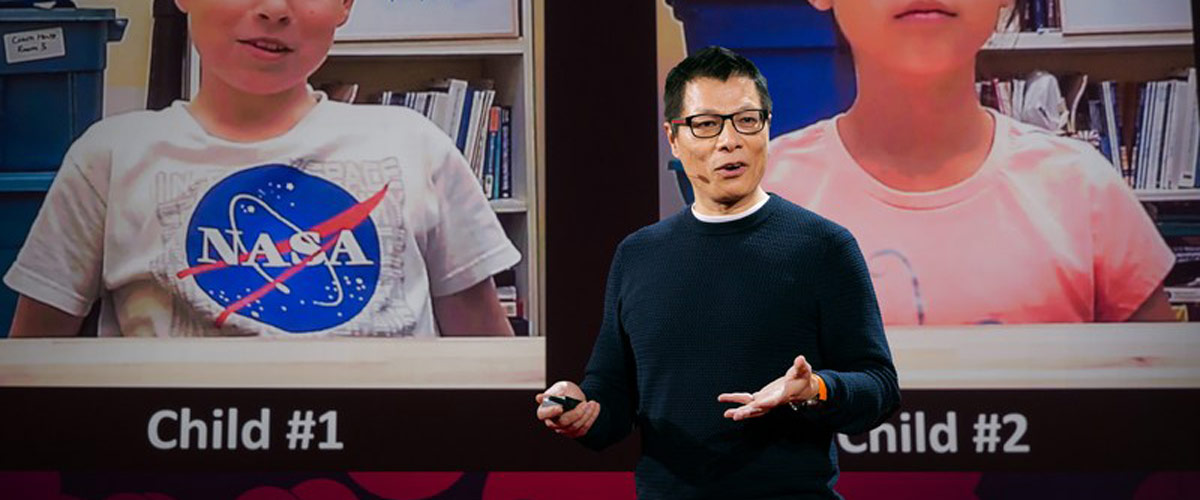I’m going to tell you a story from Mr. Richard Messina, who is my friend and an elementary school principal. He got a phone call one day. The caller says, “Mr. Messina, my son Johnny will not come to school today because he’s sick.”
Mr. Messina asks, “Who am I speaking to, please?”
And the caller says, “I am my father.”
Dr. Kang Lee, a developmental researcher at the University of Toronto, opened his talk with this story not to demonstrate how easy it can be to tell if a child is lying but instead to expose three commonly held myths about lying in children.
 Children only start lying once they are in elementary school.
Children only start lying once they are in elementary school.- Children are poor liars.
- If children start lying at a young age there must be something wrong with them.
Instead what Dr. Lee has found in his extensive research presents quite the opposite.
For the sake of his research Lee set up an experiment which involved a card guessing game that allowed children to cheat and peek at the cards, and then either reveal their transgression or lie about it. Across the board regardless of gender, age or religion about 90% of the children lied about having cheated.
Of the two year olds involved in the experiment about 30% lied… so our theory about children not lying until elementary school is probably a bit off!
As children got older the percentage that lied grew higher… At 3 years old around 50% lie, at 4 years around 80% and after that well let’s just say, close to all of them are lying. What this demonstrates is that lying is a natural part of a child’s development.
Dr. Lee explains that in order to tell a convincing lie there needs to be quite a few key developmental ingredients in a child. Ingredients that if not present in a child could mean that they have certain developmental issues like ADHD or Autism.
Kang further explains that parents should celebrate upon hearing their child’s first lie as this indicated that they have reached a milestone in their development. Now helping them avoid becoming a pathological liar, that’s a different story! Now to the most important question surrounding this subject:
Can you tell when a child is lying?
To put it simply, no.
When Dr. Lee asked adults to identify whether children in the experiment were lying or not they pretty much were right 50% of the time. Which means that even if they were just randomly guessing they would still achieve around the same score because they are either lying or they’re not!
Kang made the point of selecting groups of adults from various professions to further demonstrate how difficult it is to tell if a child is lying. Police officers, judges, child protections lawyers, social workers… they all were right around 50% of the time.
But what about parents? Surely parents can tell when their own child is lying…
Nope, they were only right 50% of the time as well!
These findings were the fuel behind Kang Lee’s research into technologies that can help us read what is going on beneath the surface when a person is lying. If you’re interested in hearing more about his research then watch the full talk below!




